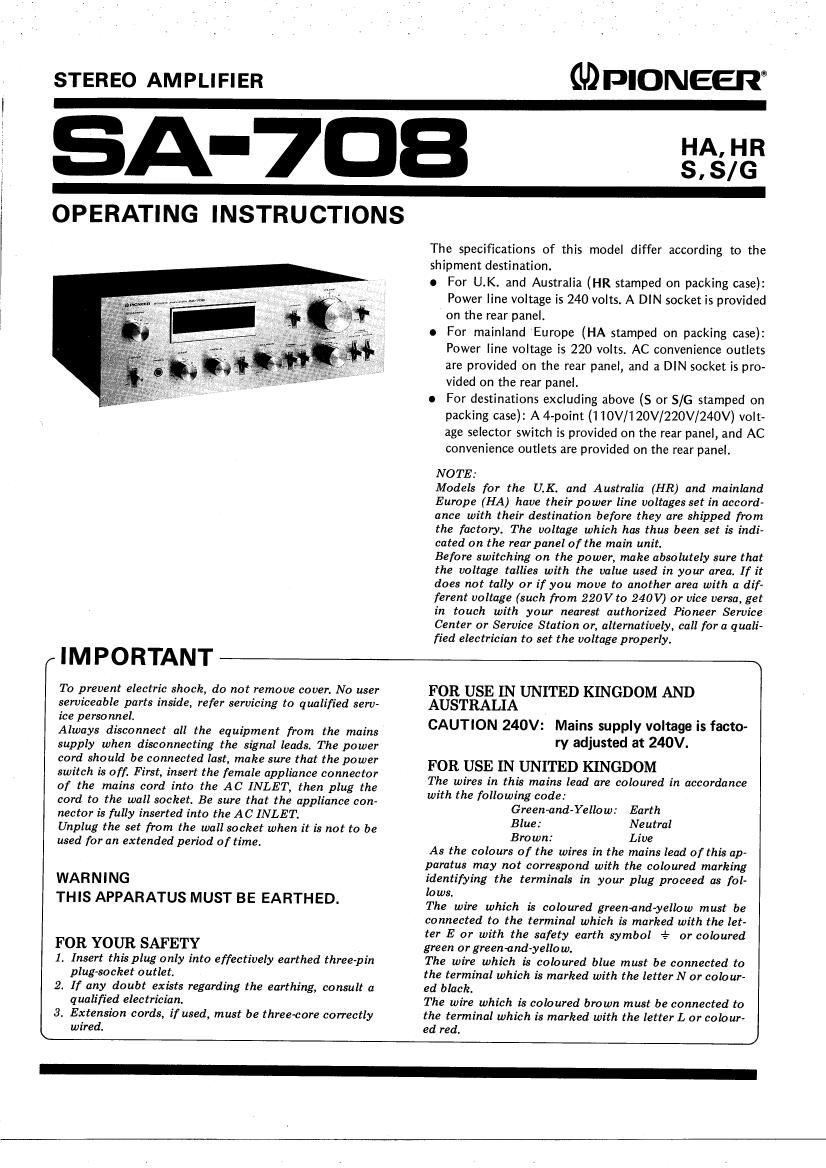Pioneer sa 708 owners manual
This is the 12 pages manual for pioneer sa 708 owners manual.
Read or download the pdf for free. If you want to contribute, please upload pdfs to audioservicemanuals.wetransfer.com.
Page: 1 / 12
